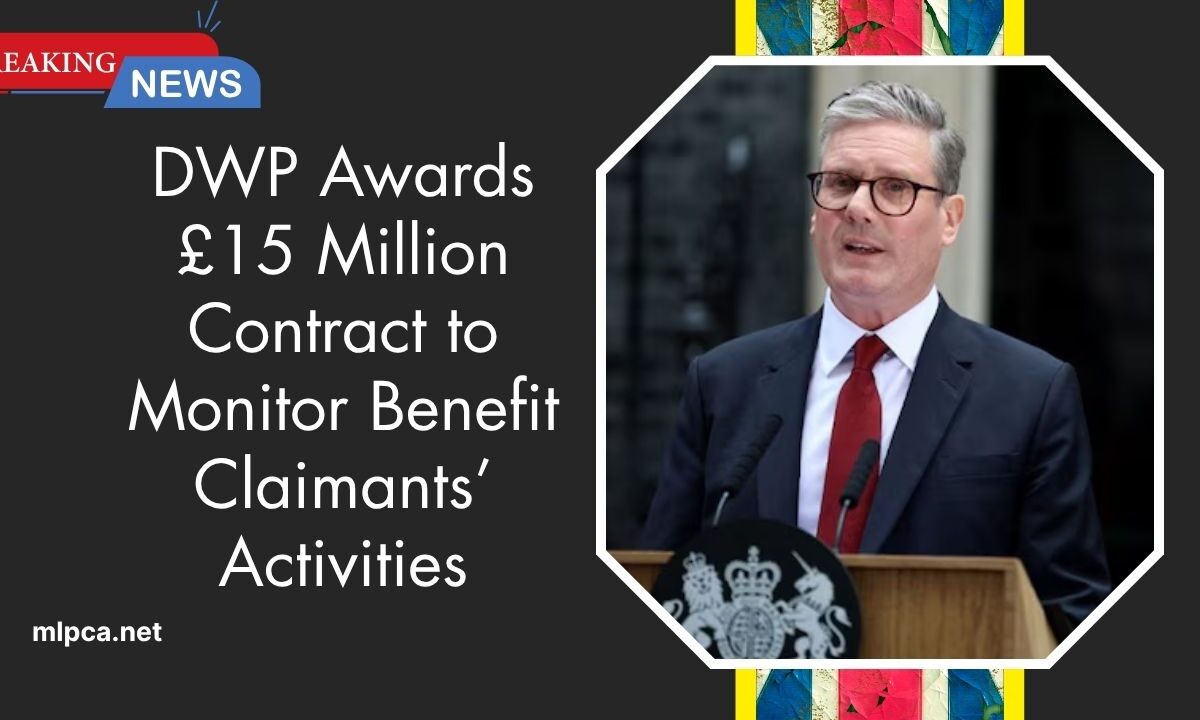The Department for Work and Pensions (DWP) has quietly signed a £15 million contract with consultancy giant Deloitte to bolster the Targeted Case Review (TCR) programme, a digital surveillance system focused on scrutinizing Universal Credit claimants.
While this deal is framed as a means to increase efficiency in tackling benefit fraud and overpayments, critics say it reflects deeper, systemic issues with the UK’s welfare strategy.
Deloitte Benefits While Claimants Struggle
Under this new deal, Deloitte will help the DWP expand the digital infrastructure of the TCR system over a two-year term, with a possible one-year extension. Meanwhile, 6,000 DWP staff members are already working under the TCR initiative, with nearly 1 million case reviews expected in 2024/25.
The DWP claims the programme has saved over £1 billion so far and projects £13.6 billion in savings by 2030. However, many see these savings as coming at a steep human cost. The strategy emphasizes clawing back funds from some of the most vulnerable in society while often ignoring systemic flaws in the benefits system itself.
Why Deloitte’s Involvement Raises Concern
This isn’t Deloitte’s first high-profile government contract. The firm previously played a leading role in the COVID-19 Track and Trace system, which cost the UK taxpayer £37 billion and delivered questionable results.
Now, the same consultancy is entrusted with reviewing benefit claims, despite its track record of cost overruns and lack of accountability.
This decision signals a worrying trend: prioritizing private sector profit over public welfare, with Deloitte profiting while those on Universal Credit face harsher scrutiny.
The Myth of Mass Benefit Fraud
The government continues to promote the narrative of widespread benefit fraud, but the facts tell a different story. In 2022/23, total fraud and error in Universal Credit was estimated at £5.5 billion. Compare that to the staggering £46 billion lost annually to tax avoidance and evasion, and the imbalance becomes clear.
Yet, the DWP receives £443 million to pursue minor benefit errors, while HMRC, responsible for recovering far greater tax losses, sees far less funding for similar efforts. The result? A parallel bureaucracy punishing those in need rather than addressing actual financial risks.
Punishing the Poor, Rewarding Big Business
Thousands of disabled individuals and people with mental health conditions now face intense scrutiny due to TCR audits. Often, these reviews result from clerical errors made by the DWP itself. Yet, instead of streamlining the system, the government continues to push a punitive model that doubles down on administrative control.
Even call centres supporting TCR operations are outsourced—many to Teleperformance, a company previously criticized for exploiting workers and delivering poor service. This is all done in the name of “efficiency,” but the true motivation appears to be ideological, not practical.
Ideology Over Integrity: A Flawed Approach to Welfare
The reliance on private contractors, surveillance tools, and bureaucratic hurdles does not address the root causes of poverty. Instead, it reinforces a damaging message: that those in need of help are inherently suspect, and only corporate solutions can fix systemic problems.
For claimants, this approach translates into mental distress, debt collection notices, and benefit suspensions—even when errors originate from the DWP. Though officials claim this is about “protecting people from debt,” it’s often the department itself that drives people into financial instability.
The £15 million deal with Deloitte is emblematic of a broader issue plaguing the UK welfare system. Instead of focusing on reducing poverty, the DWP is choosing to investigate, punish, and outsource. This isn’t about improving services or protecting public funds; it’s about pursuing an ideological agenda that prioritizes cost-cutting over compassion.
If any part of this system needs a review, it’s not the claimants—it’s the policies and principles driving the DWP’s actions. Until meaningful reform occurs, millions will remain trapped in a cycle of surveillance and suspicion, while firms like Deloitte continue to profit.
FAQs
What is the Targeted Case Review (TCR) programme by the DWP?
The TCR is a large-scale audit system launched by the DWP to review Universal Credit claims. It aims to detect fraud and overpayments but has been criticized for disproportionately targeting vulnerable claimants.
Why is Deloitte’s involvement controversial?
Deloitte, previously involved in the costly and ineffective Track and Trace system, is now managing critical welfare operations. Critics argue this reflects a privatized welfare strategy that prioritizes corporate profit over public accountability.
Is benefit fraud a widespread issue in the UK?
No. Benefit fraud and error in Universal Credit were estimated at £5.5 billion in 2022/23, which is small compared to the £46 billion lost to tax avoidance and evasion. Yet, the DWP receives more funding to pursue benefit errors than HMRC does to tackle tax issues.

